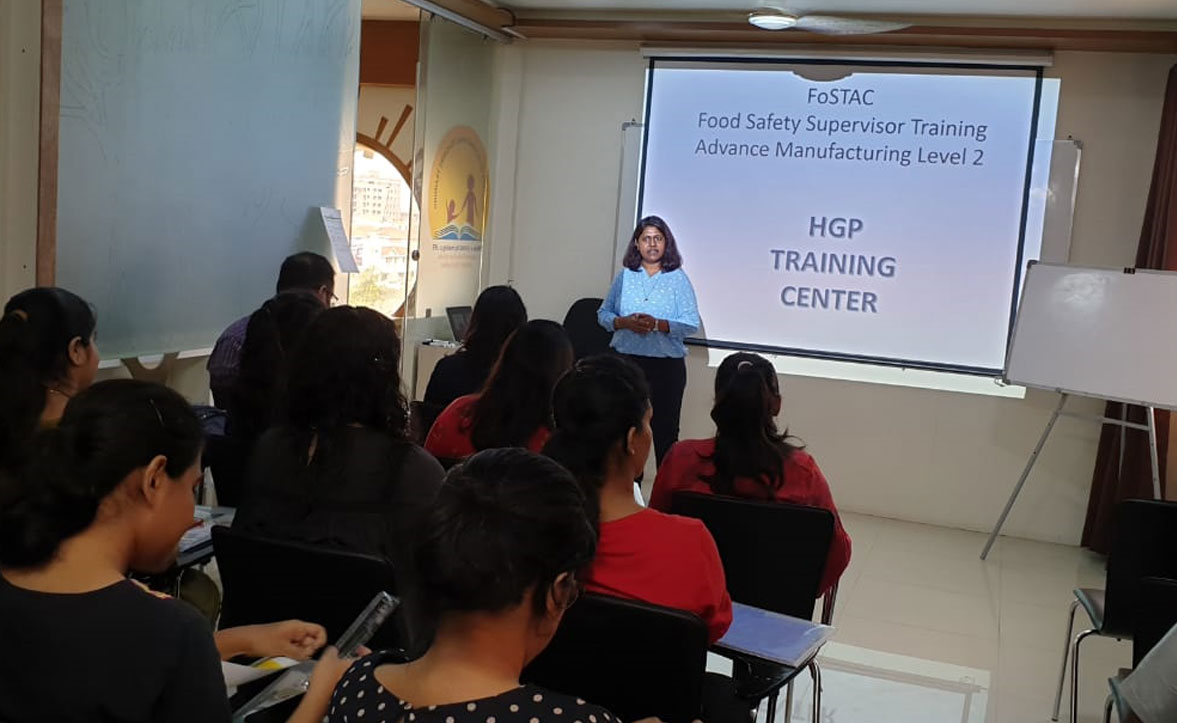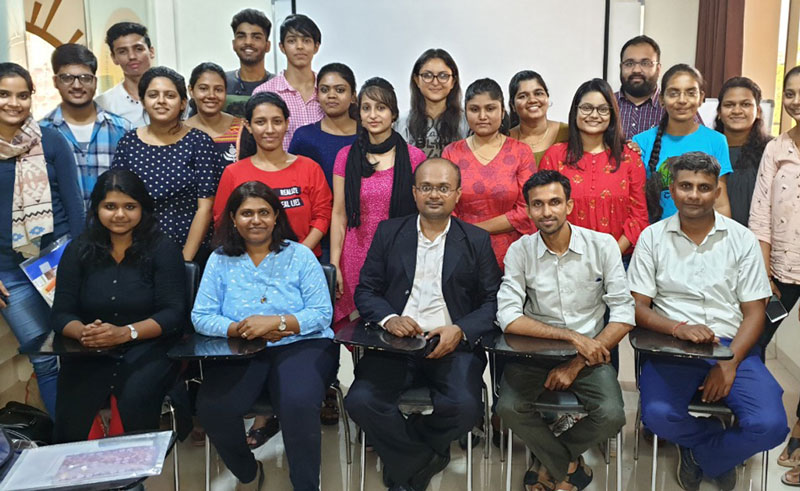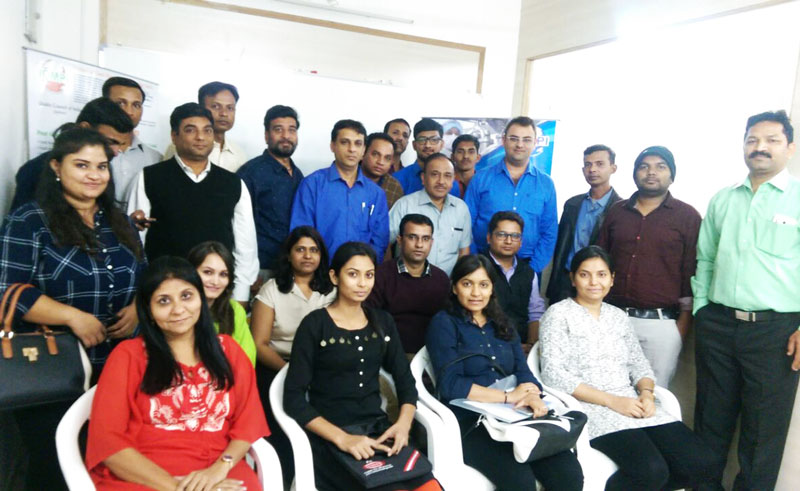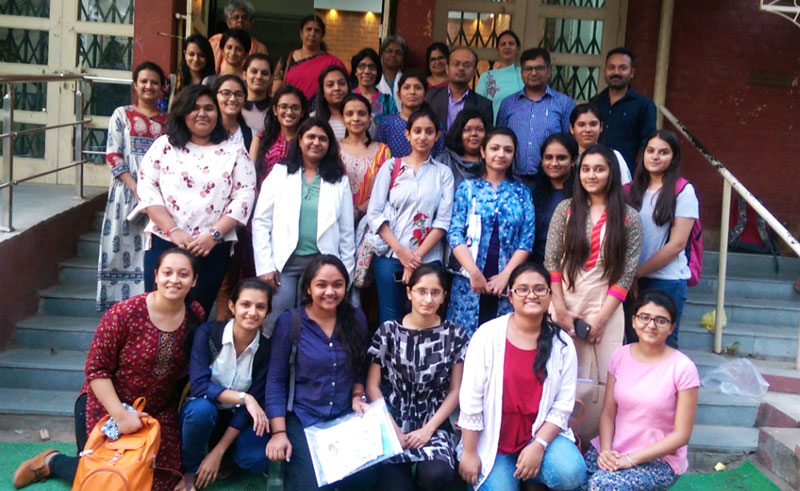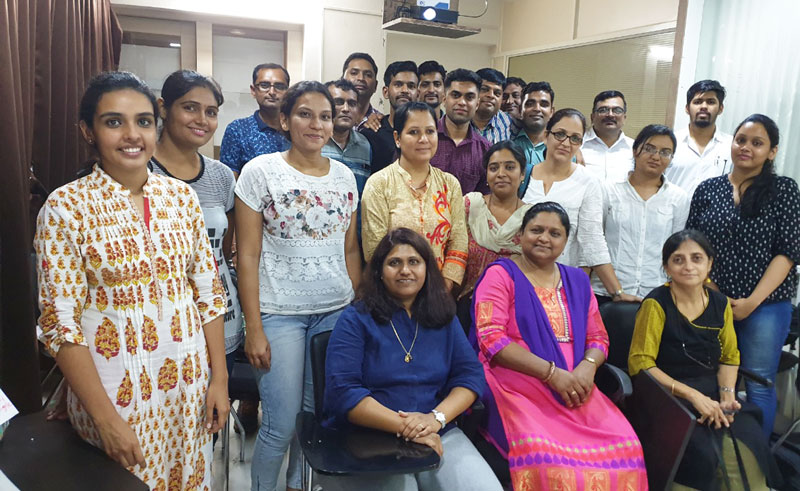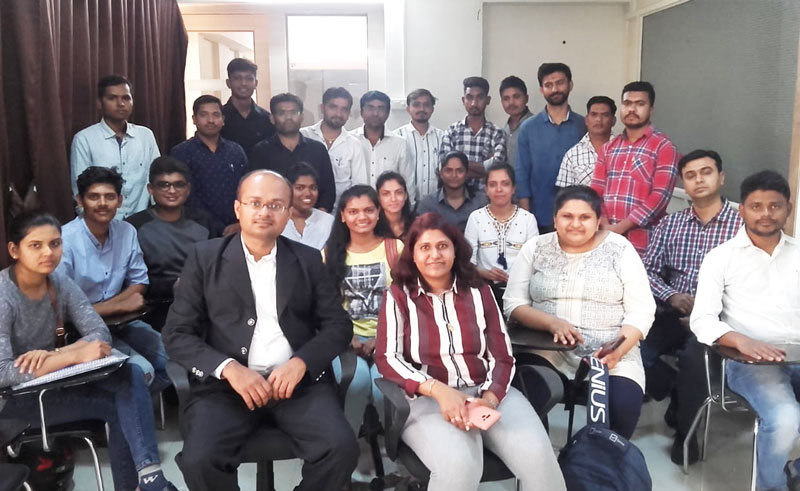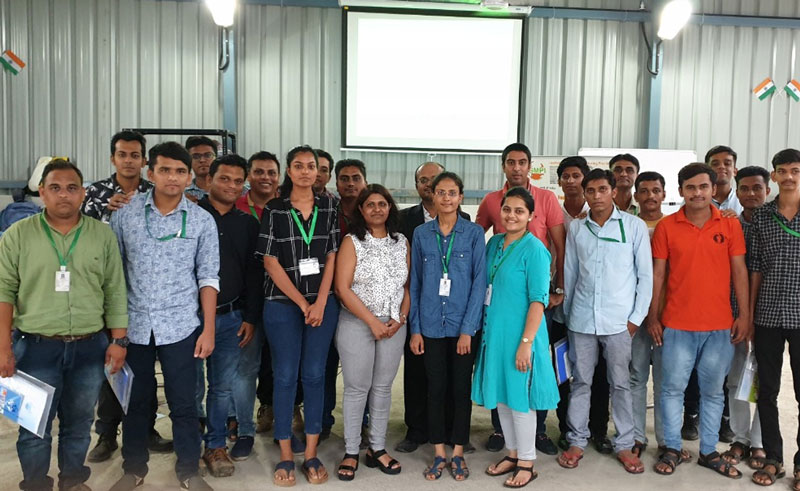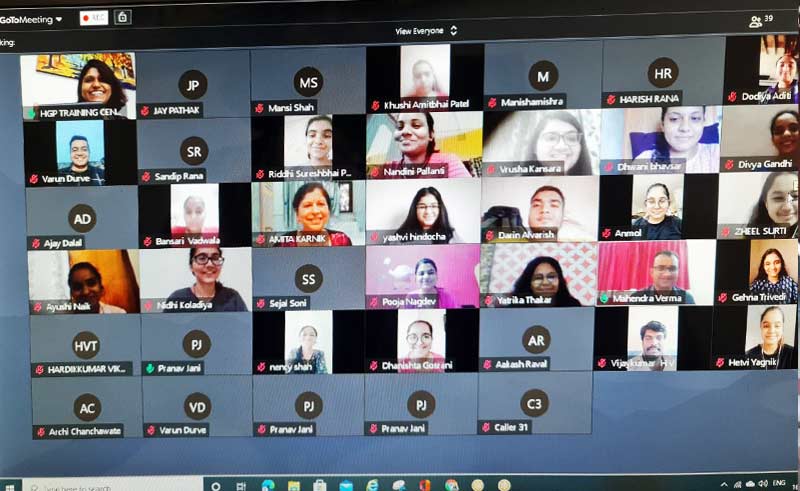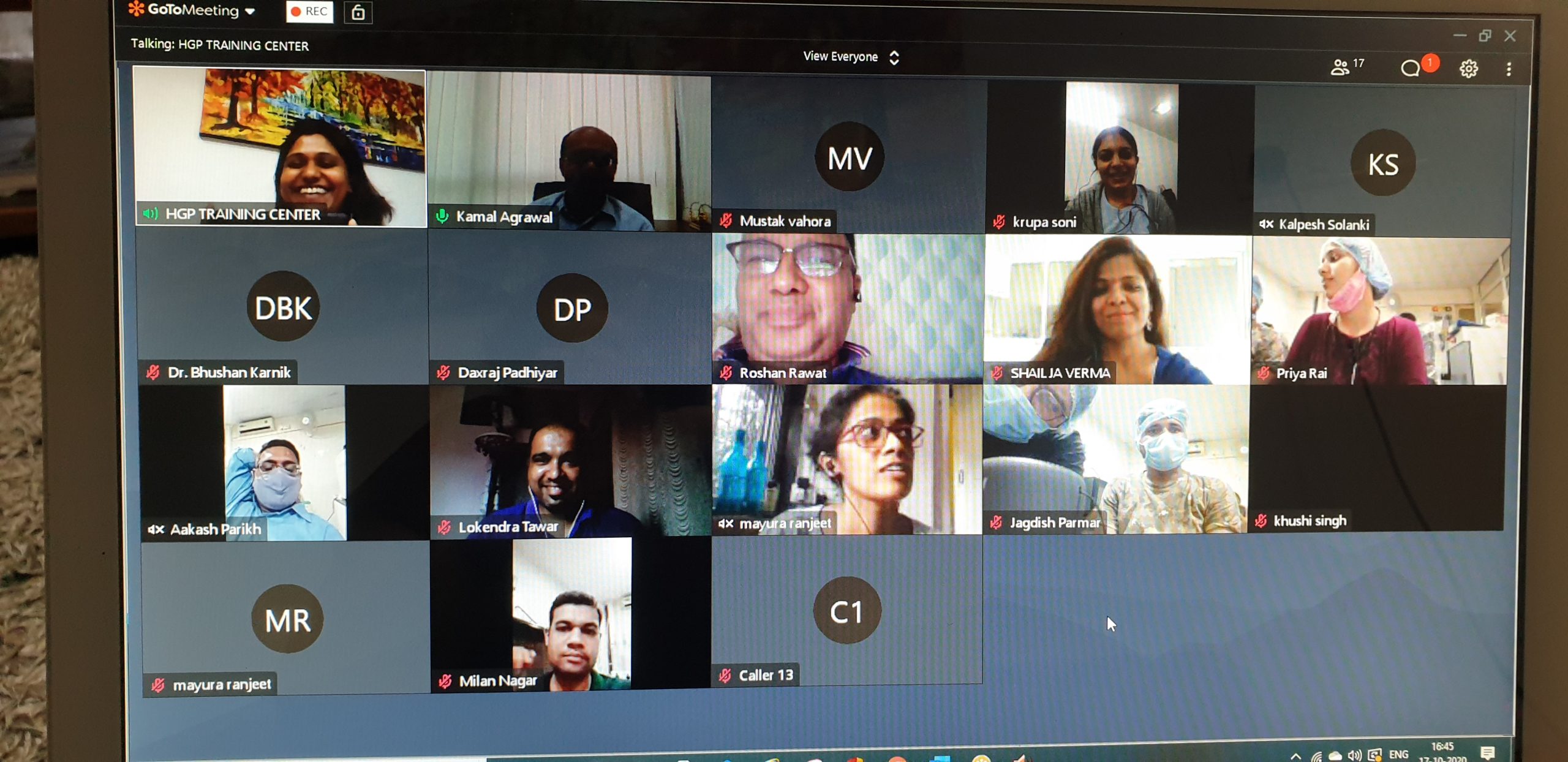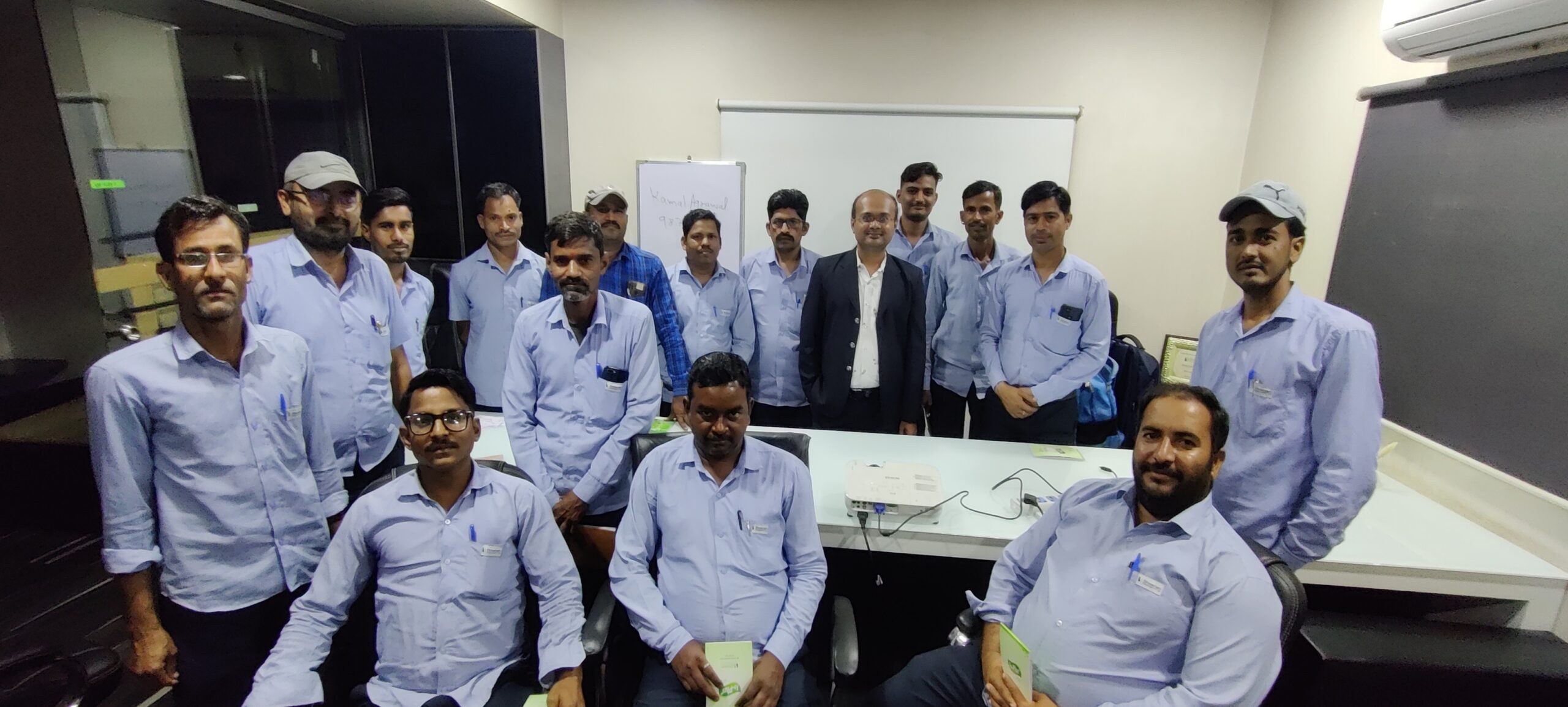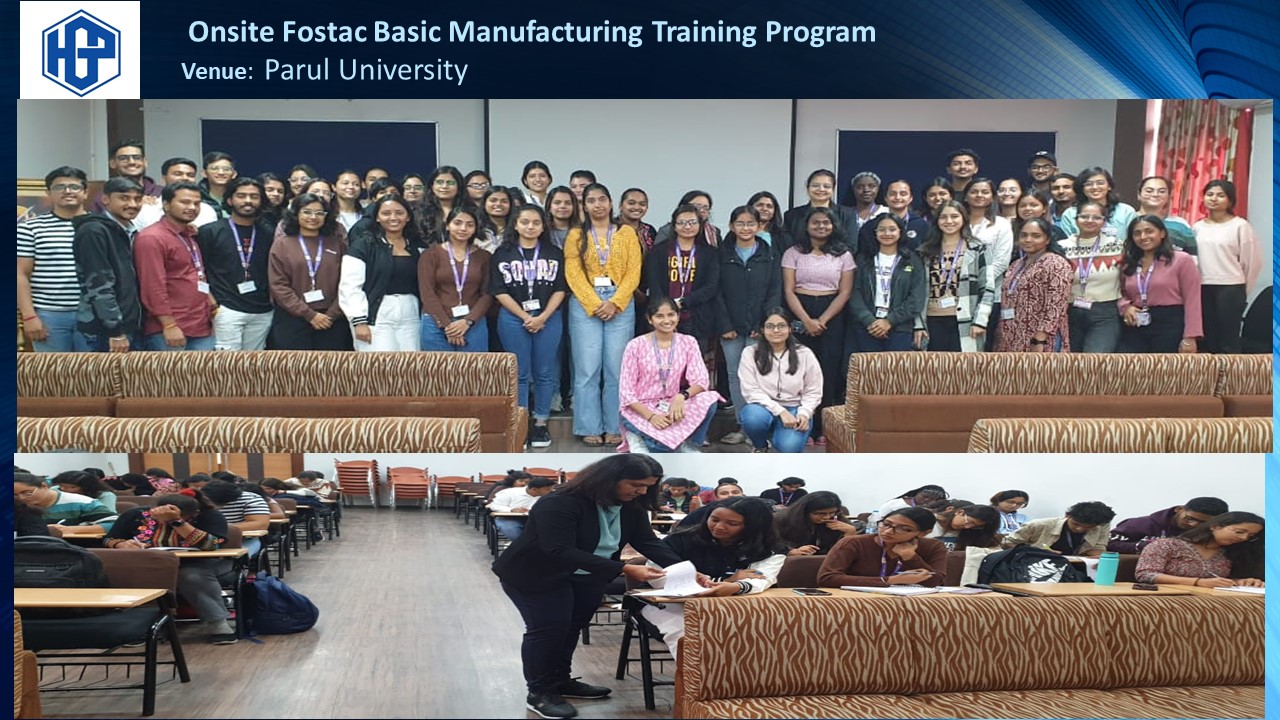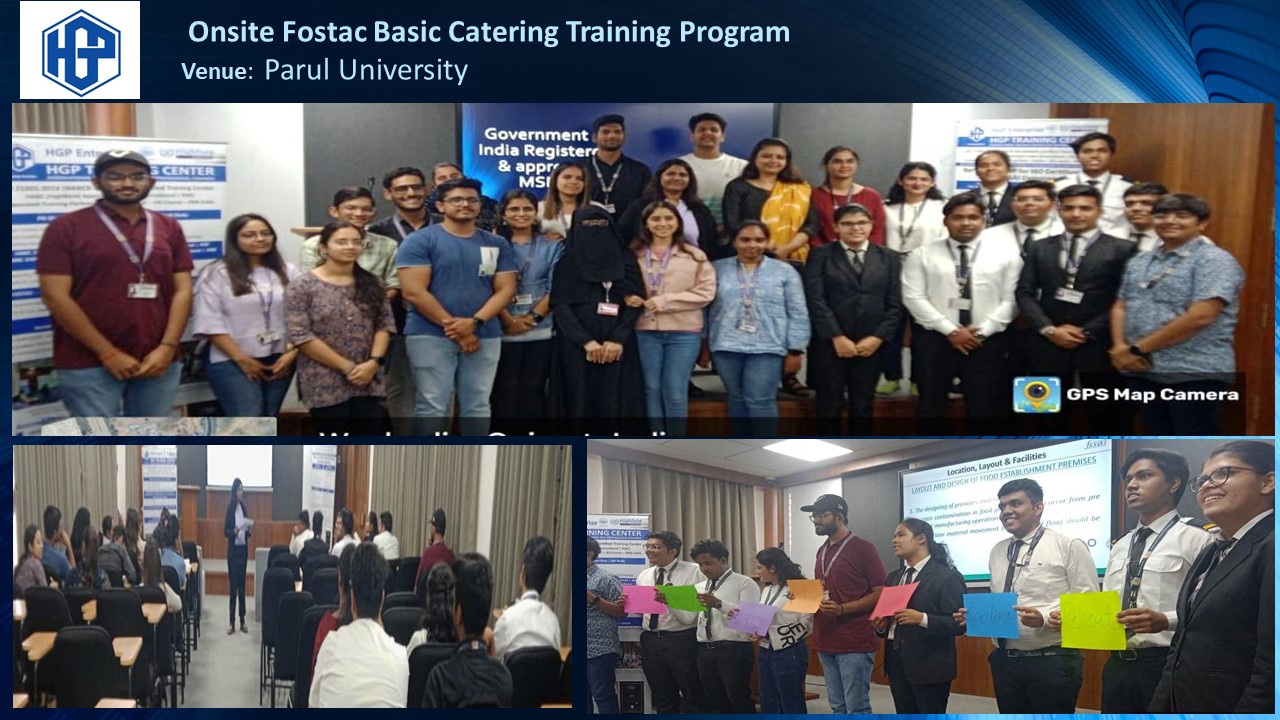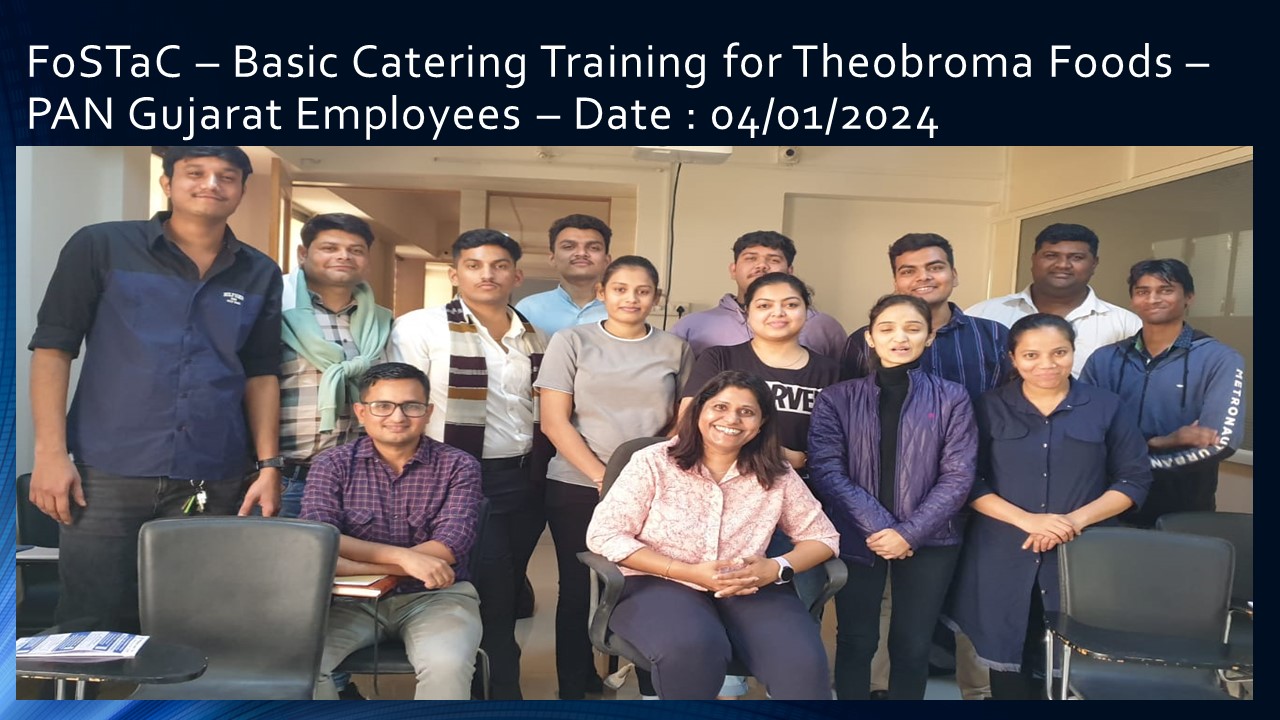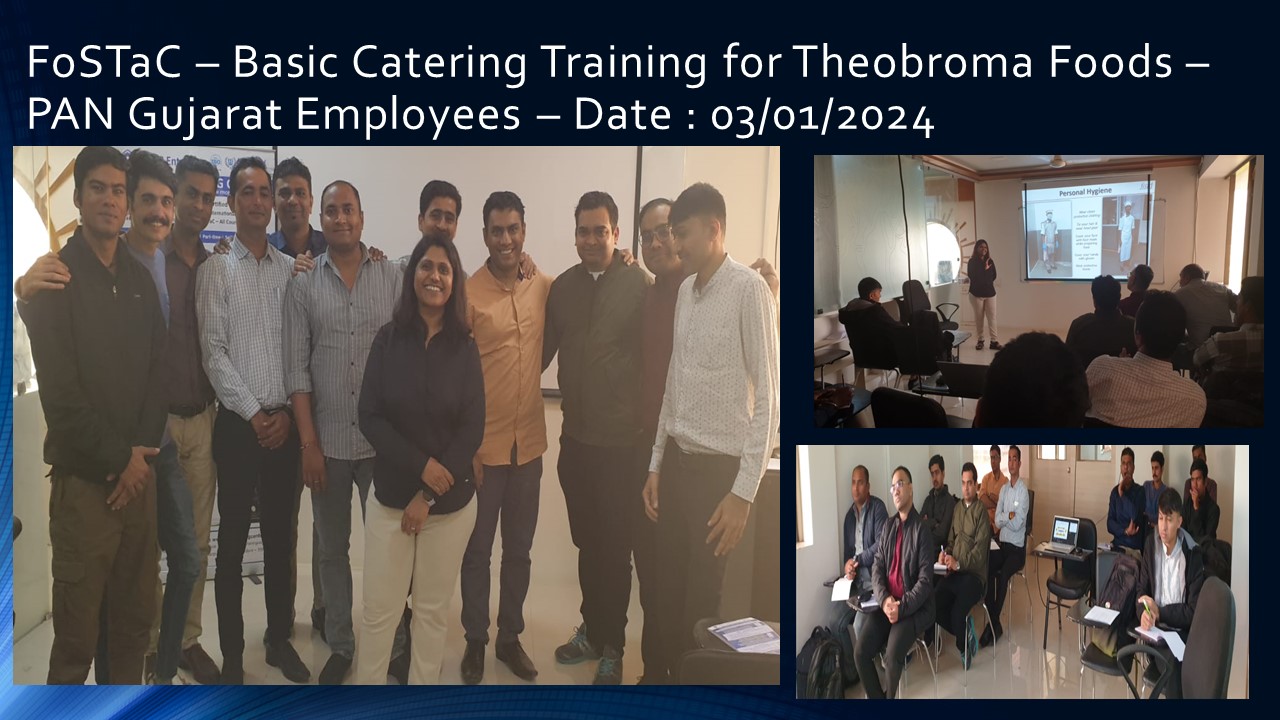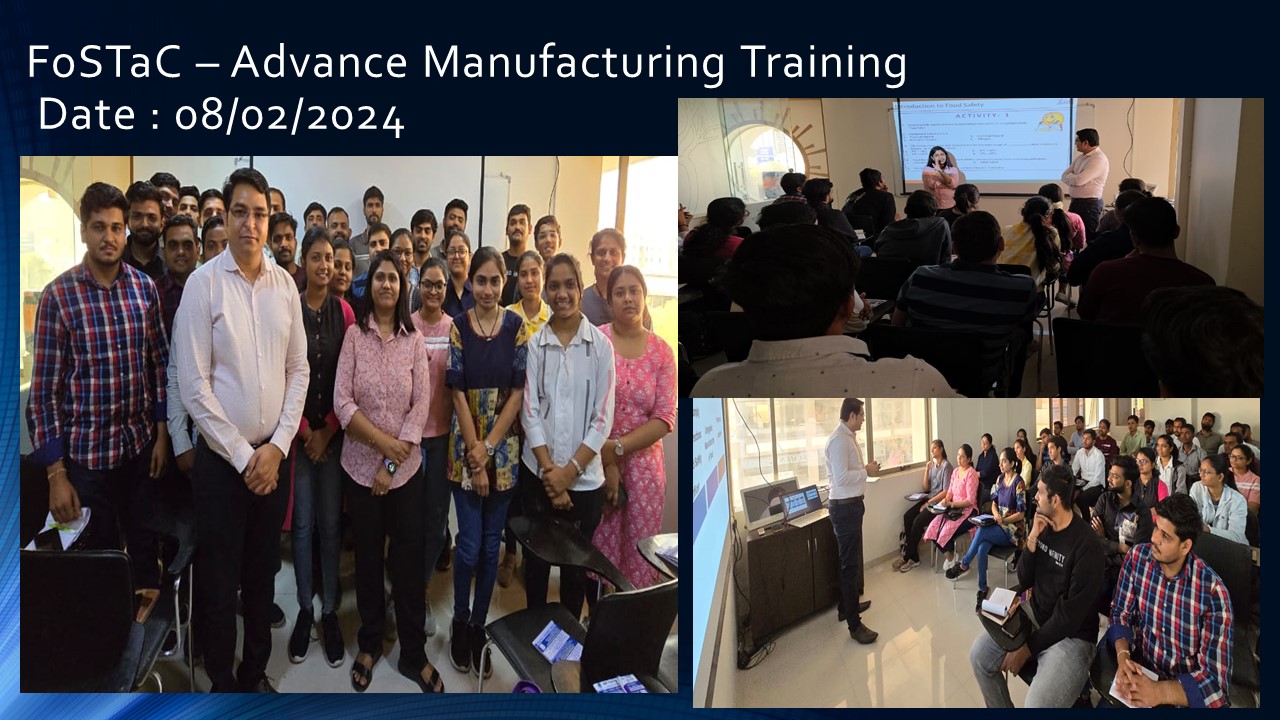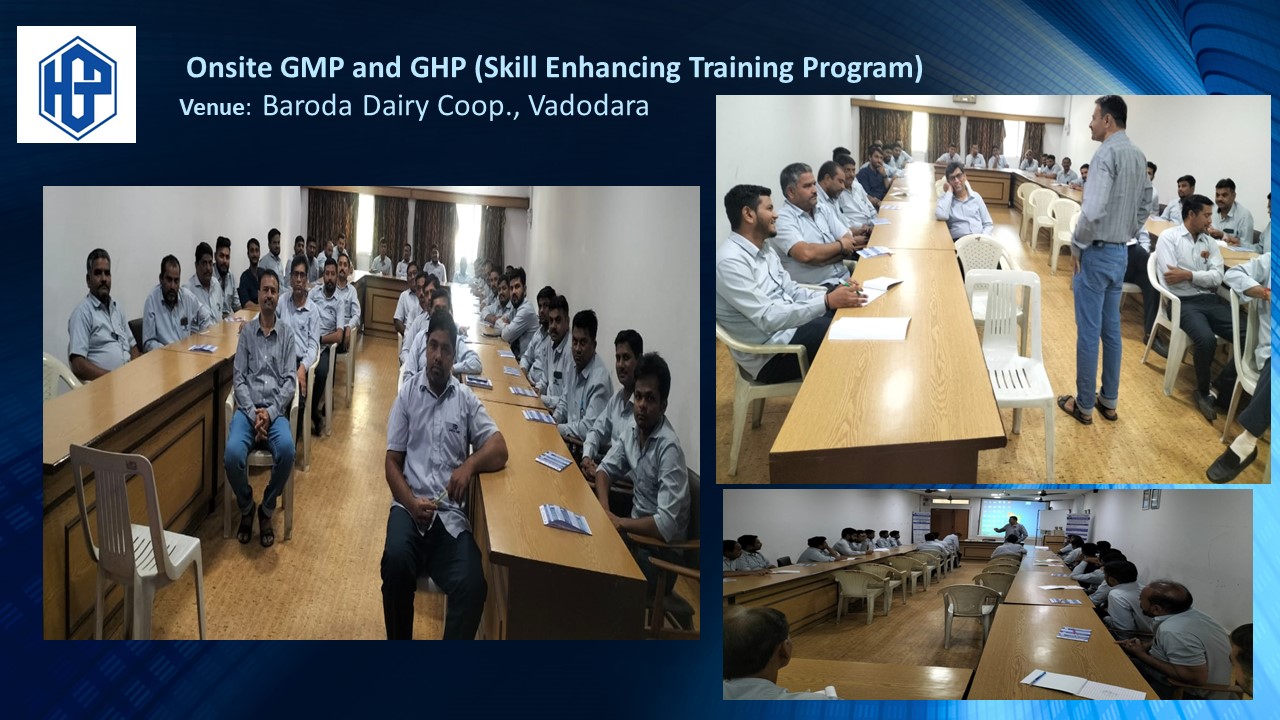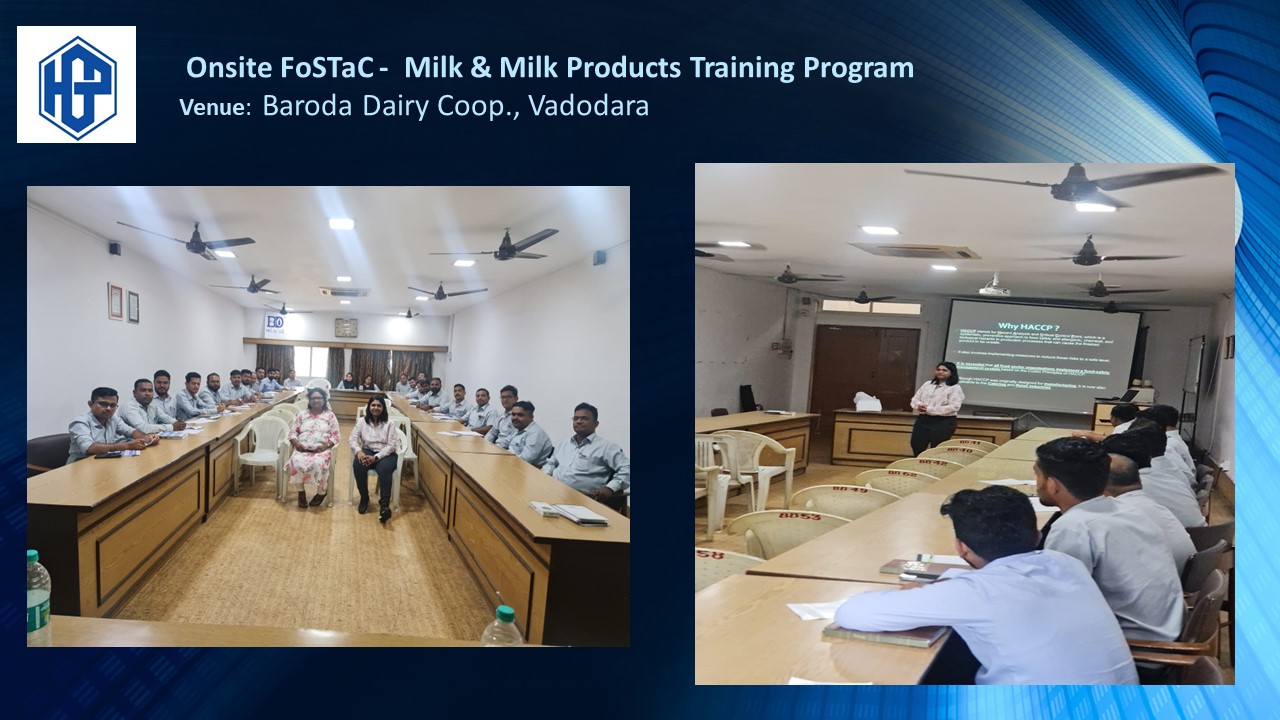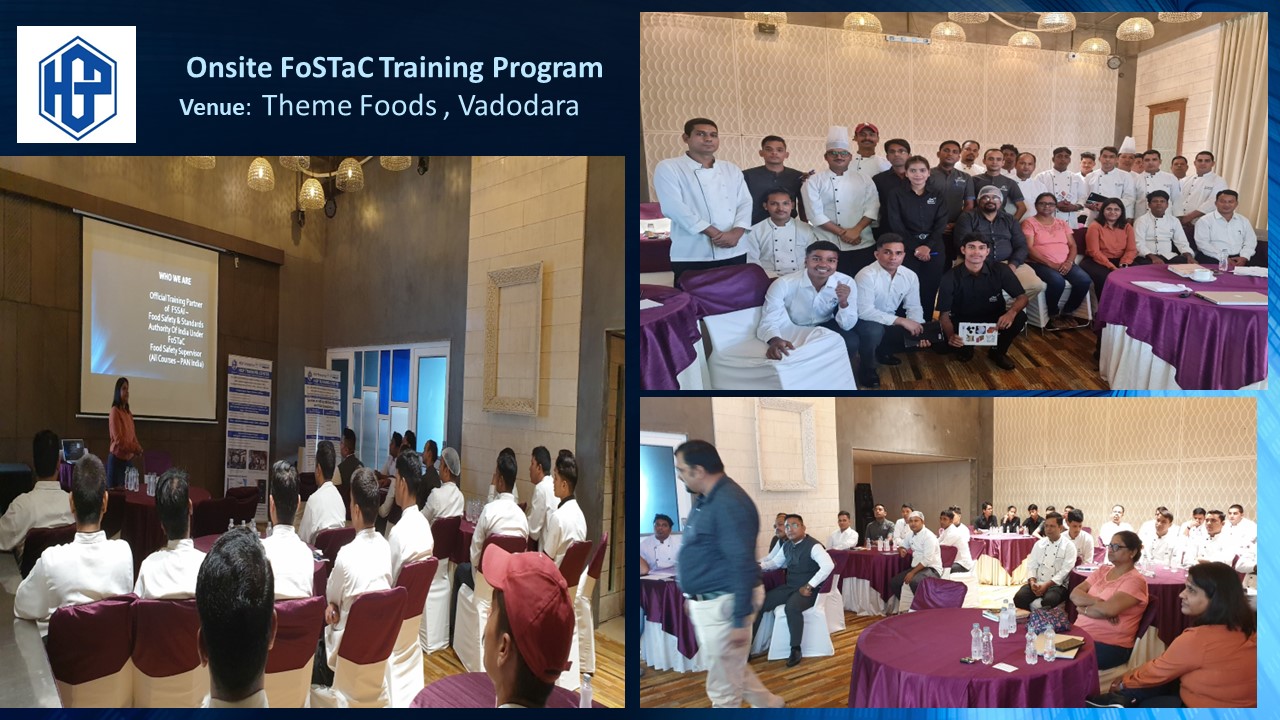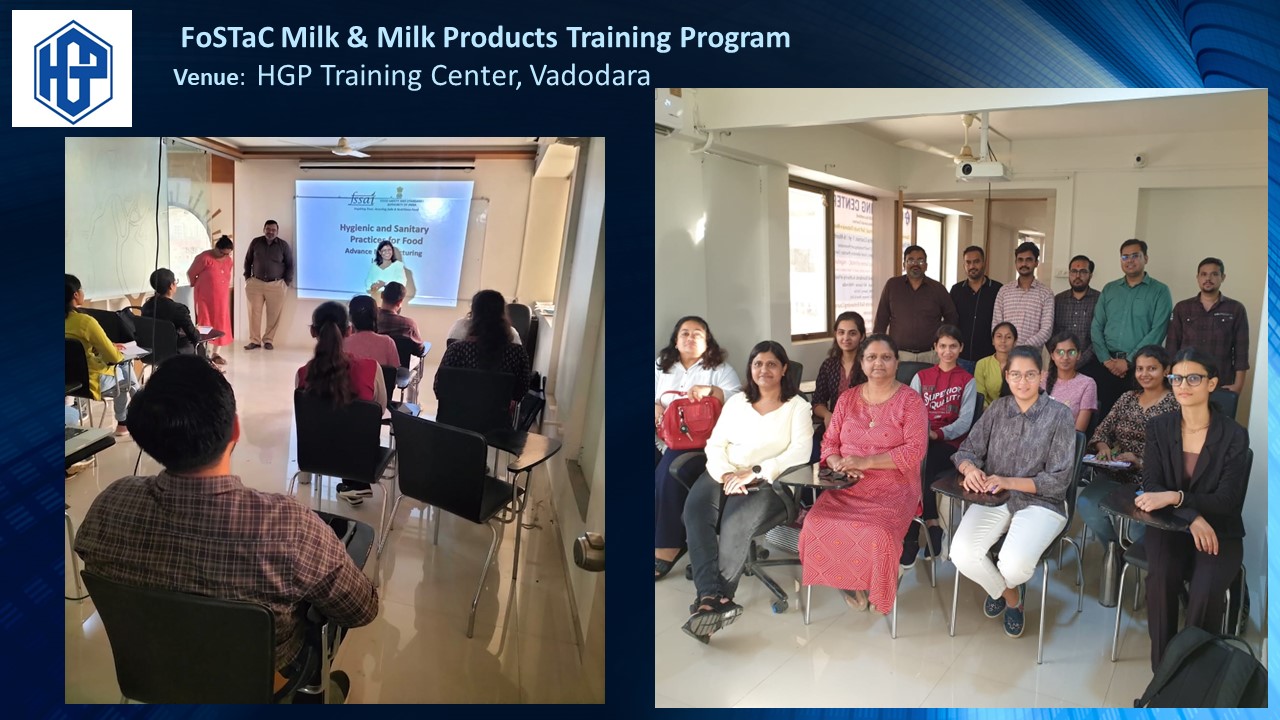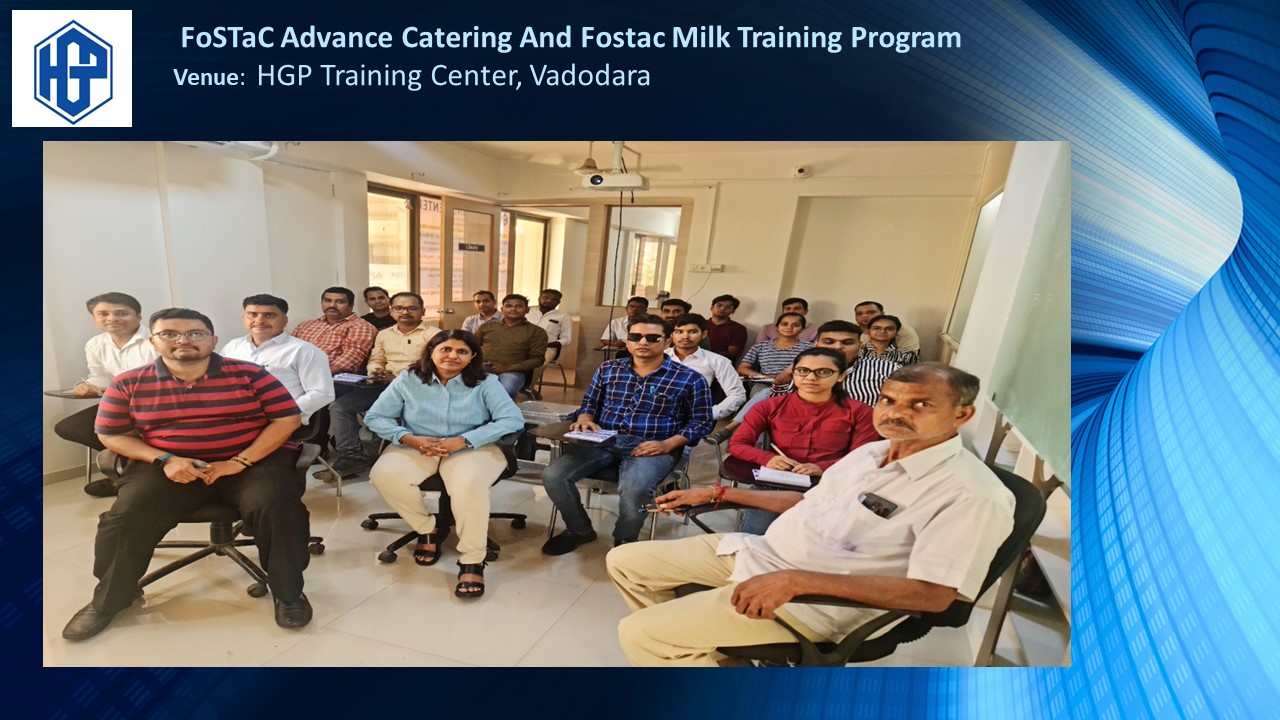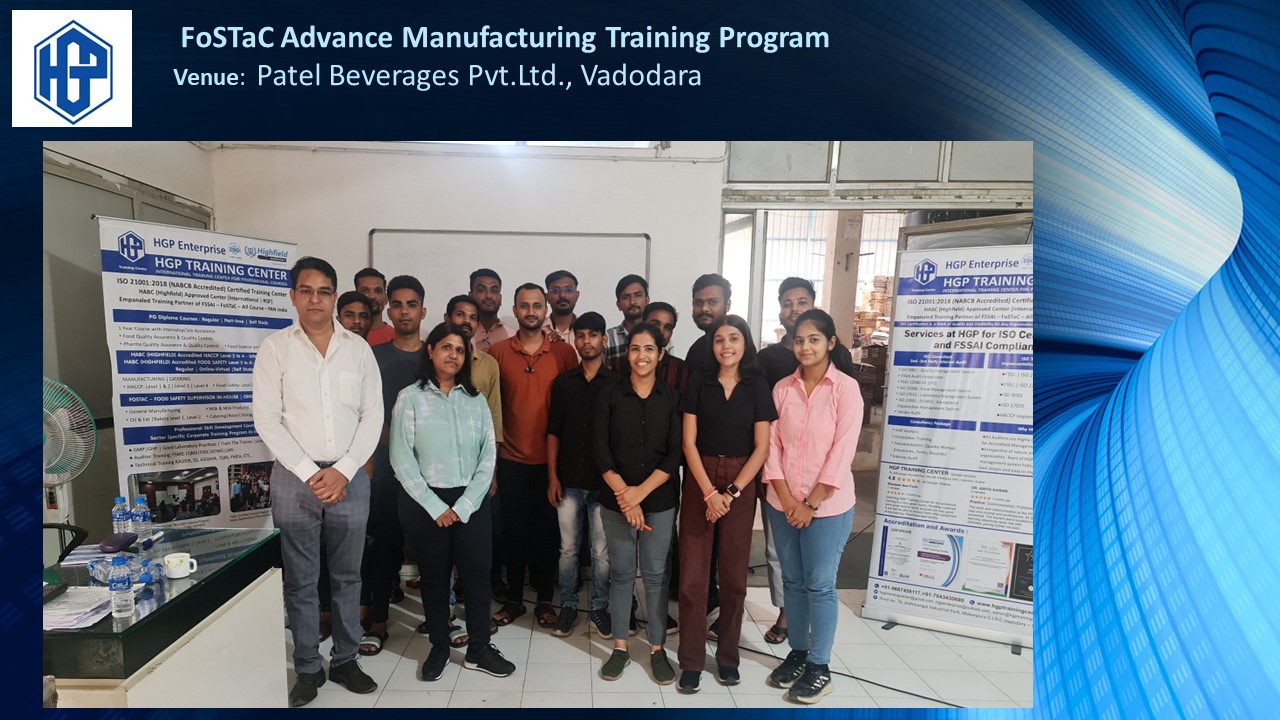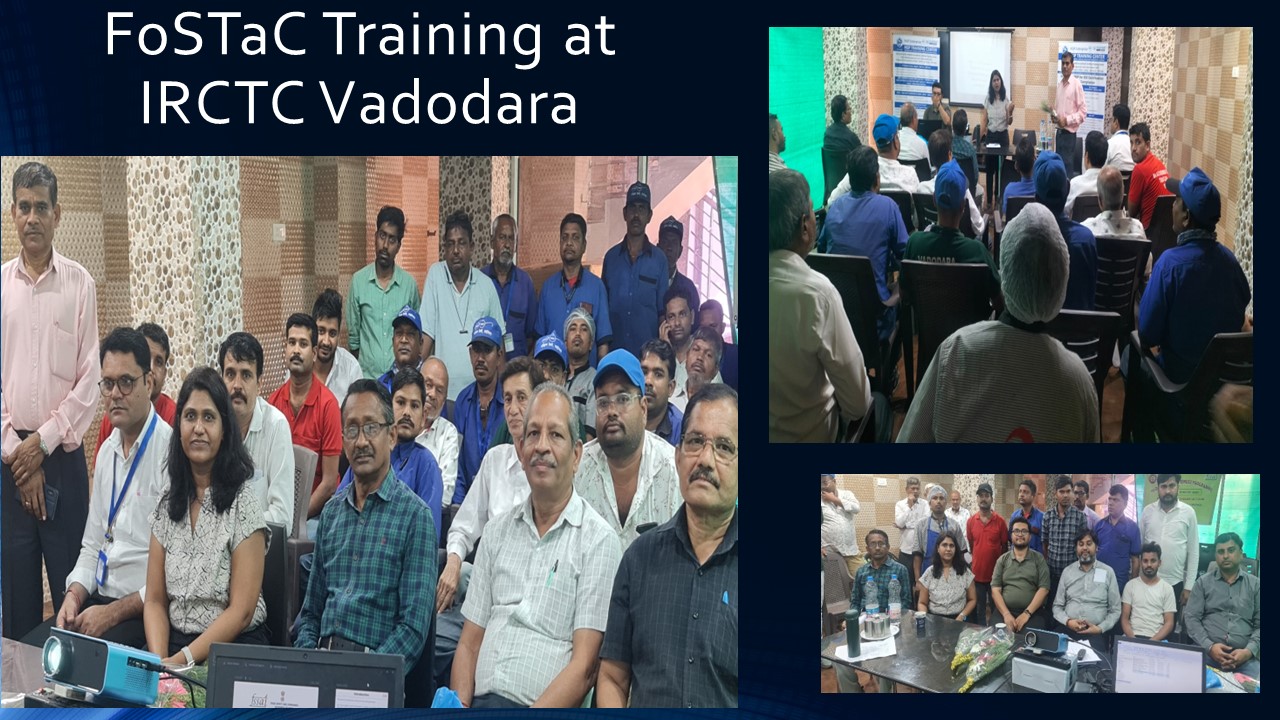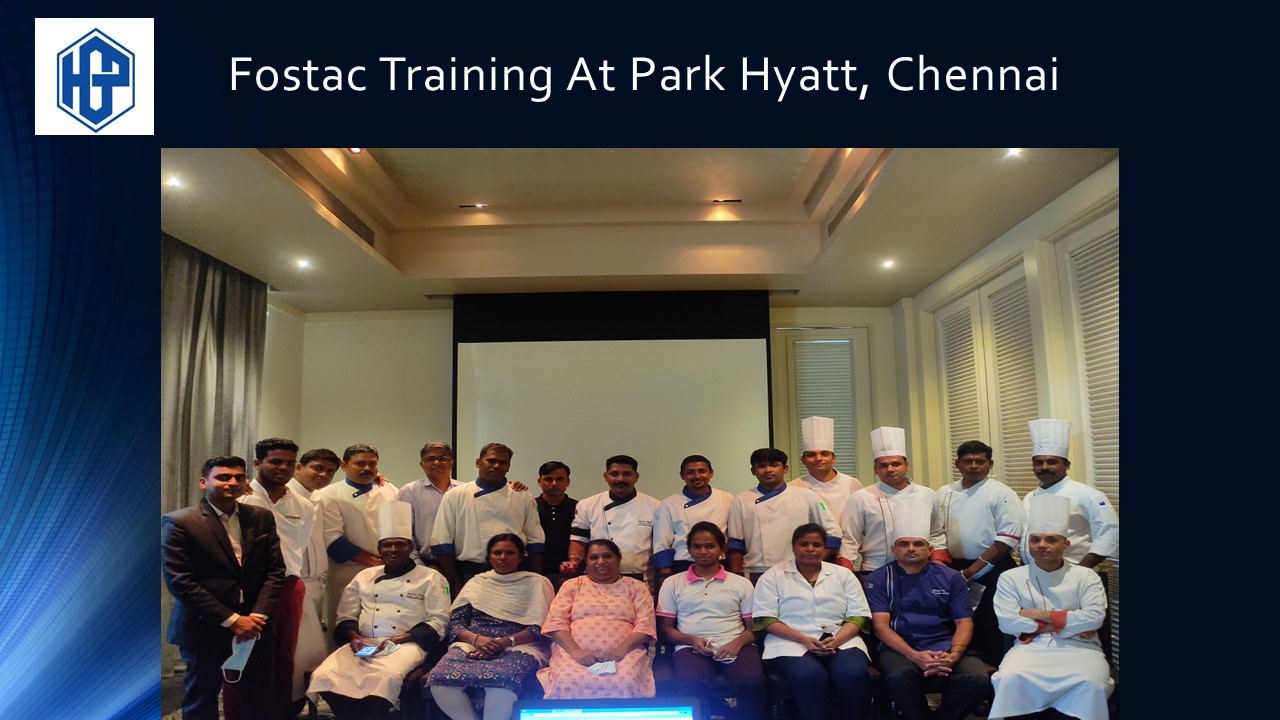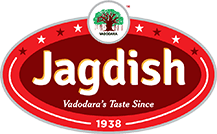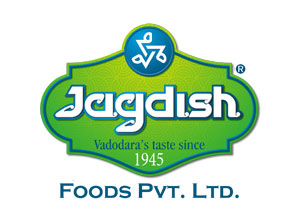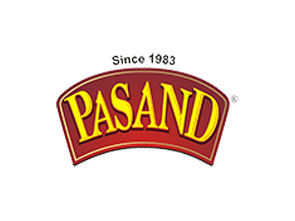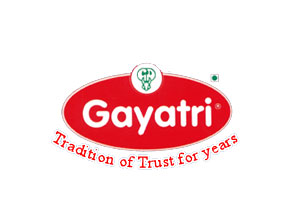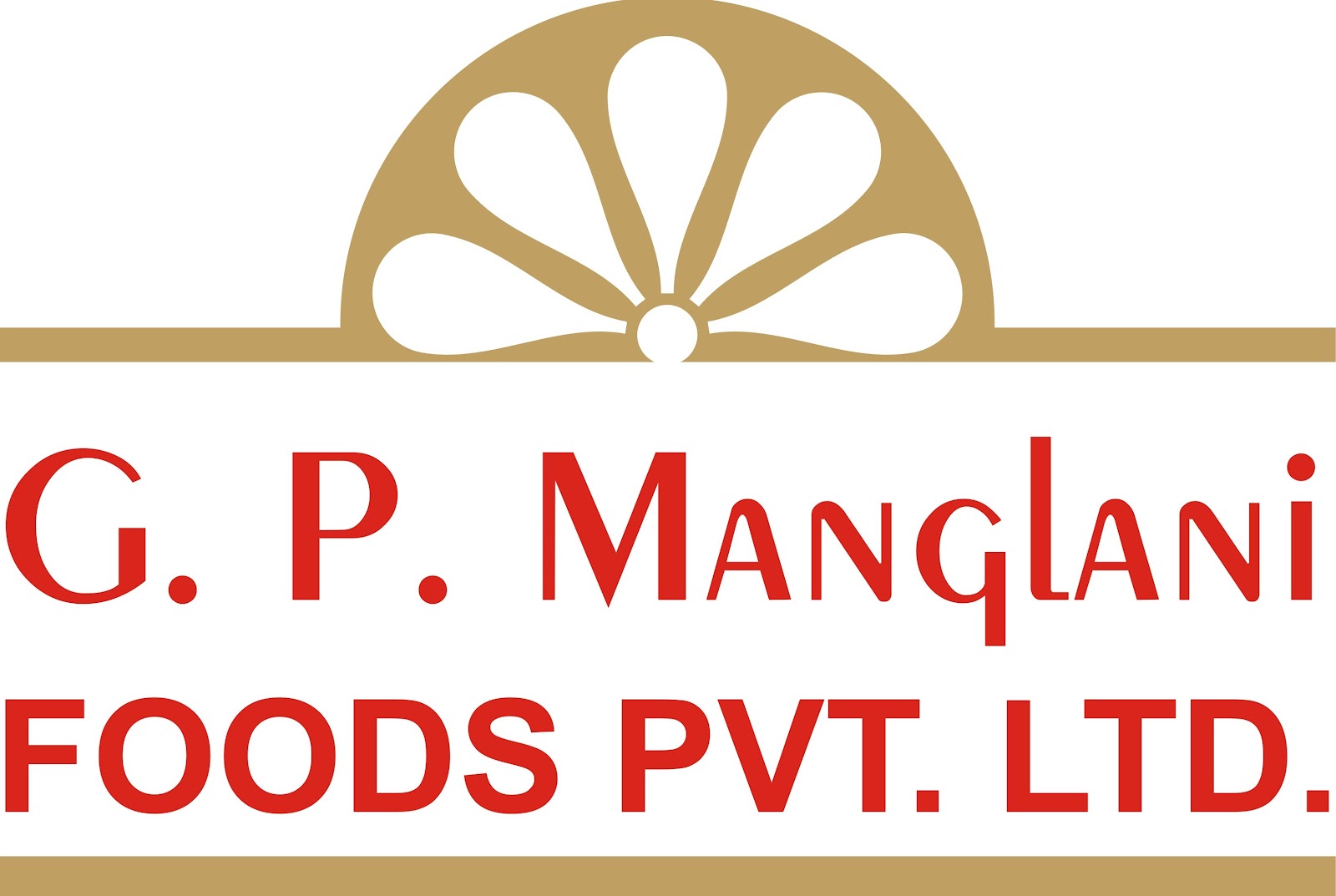HGP Training Center is an Empaneled Training Partner of 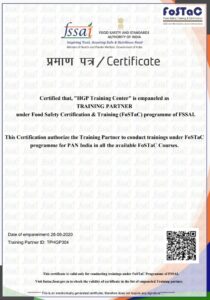 FSSAI under FoSTaC for All Courses PAN India.
FSSAI under FoSTaC for All Courses PAN India.
Trusted Name amongst Food Manufacturing Industry / Food Businesses |Catering / Hospitality Industry, Individual Employees of Food Manufacturing/Catering/Hospitality Business, University Faculty, Students of Food/Hospitality /Catering , and Science Graduate Students who have Already Successfully completed or Pursuing Courses from HGP Training Center.
As an Active Training Partner of FSSAI, HGP Training Center has Conducted Several FoSTaC Trainings at HGP Center | Onsite (Manufacturing Industries) | Universities in Regular (Classroom)| Online Virtual Mode for FSSAI’s “Eat Right India” Movement. Till now More Than 800 Food Safety Supervisors Have Been Enrolled and Certified at HGP Training Center since 2017.
Completed FoSTaC Trainings at HGP Training Center :
3rd June 2022 ,Online Completed
25th April 2022 (Completed)
21st March 2022, Completed
29th December, 2021, Time – 9:30 AM to 4:30 PM (Completed)
25th August 2021, Time – 9:30 AM to 4:30 PM (Completed)
17th July 2021 / Time : 10:00 am To 05:00 pm (Completed)
Date : 9th April 2021 /Time : 10 am To 5 pm (Completed)
27 February 2021 / Time : 10:00 am To 05:00 pm (completed)
25 February 2021 / Time : 10:00 am To 05:00 pm (Completed)
22 January 2021 /Time :8 am To 12pm /Venue :Deepak Foundation (Completed)
22 January 2021 /Time :12 pm to 4pm 12pm /Venue :Deepak Foundation (Completed)
21 January 2021 / Time : 10:00 am To 05:00 pm (completed)
23 January 2021 / Time : 10:00 am To 05:00 pm (completed)
16th September 2020 (Completed) / Time : 09:30 am To 4:30 pm
17th October 2020 (Completed) | Time: Time : 10 am to 5 pm
- FSSAI license – Mandatory Food Regulatory Compliance.
- Certificate from FSSAI, Govt. of India, after successful completion of the training.
- Understanding basic concepts of food safety & hygiene.- Minimizing legal hassles & helps in complying to FSSAI Requirements.
- Lowering the percentage of food infections & poisoning & also long term consequences due to such incidents.
- Food Safety Supervisor can train people within your organization.
- Food Safety Supervisor (FoSTaC ) certificate validity is 2 Years.
Advantages of undergoing FoSTaC Training:
For FBOs
- Enhance the availability of skilled manpower in the field of food safety
- Food Safety Supervisors ensures better implementation of Schedule 4 requirements of the FSS Regulations in food businesses which in turn reduces the non-compliance for FBOs during the regulatory inspection and smoothens the operations during pre- audit and audits.
- Having a food safety supervisor will lead to self-compliance of FSSAI’s schedule 4 requirements and further it reduces the burden of the legal action/ grievances/ complains raised by the consumers, regulatory officials and Food Authority.
- Build a confidence among the consumers for food safety and maintaining hygiene in their food business premises which reflects on the profit of the food business
For Food Handlers in food business
- Improve their performance and value in the food businesses
- Enhance the knowledge and in the field of food safety
- Considered as a skill development in food safety and quality assurance
- Opportunity to exhibit your leadership quality among the other food handlers
For Students and others intending to enter in food business:
- Value addition to the individual’s resume and improves their employability in the food sector throughout the country
- Enhance their knowledge in the field of food safety
- Able to fulfil the demand for skilled food handlers in the food businesses as Food Safety Supervisors.
- All Who are working in Food Industry
- Graduate or Final year Students who want to join Food industry
- All those who wants to Renew their Certificate of Food safety supervisor training.

- All Successful candidates will receive a certificate issued by FSSAI specifying their qualification shortly after attending their course.
- Online Exam For 30min. MCQ Type (click on correct answer).
- All candidates will receive training material (soft copy) to guide them through their Food Safety both during the Course and back in the workplace.
Why FoSTAC Training? : Section 16 (3) (h) of the FSS Act mandates that the Food Authority shall ensure the training of the Food Business Operator. In this line, FSSAI has developed a training ecosystem that will create trained food handlers who will be called a Food Safety Supervisor.
Objective:
- To enhance the availability of skilled/ trained manpower in the food industry.
- Creating an improved environment of self-compliance to FSS Act, Rules and Regulations by the responsible Food Businesses.
- Bringing a behavioural change and inculcating a culture of Food safety in the country.
To help FBOs understand and compliance with hygiene and sanitary requirements, the Schedule 4 of Food Safety and Standards Licensing and Registration Regulations, 2011 have been simplified to deliver training through 25 certification courses (24+1 self-learning course) developed by a panel of domain experts empanelled by FSSAI covering the entire food value chain.

Food Safety Supervisors (FSS) are appointed by the Food Business Operator and holds a valid FoSTaC certificate issued by the Food Safety and Standards Authority of India. Food Safety Supervisors are trained in good hygienic and sanitary practices to be followed by all food business operators as per requirements in Schedule 4 of Food Safety and Standards (Licensing and Registration of Food Businesses) Regulations, 2011.
Definitions
“Food Safety Supervisor” means a person appointed by the Food Business Operator and holds a valid food safety certificate of training approved by the Food Authority.
“Food Handler” means a person who directly handles packaged or unpackaged food, food preparation equipment and utensils or food contact surfaces.
Role of Food Safety Supervisor
- To recognise and prevent risks associated with food handling in food business
- To train and supervise the other food handlers in the food business premises
- Implement the Schedule-4 requirements in the food business
- Ensure the compliance of food business with all the FSSAI’s requirements
- Should carry out periodic onsite training of all food handlers, at least on a quarterly basis and maintain record thereof
- Create a behavioural change in other food handlers regarding personal hygiene, good hygienic/manufacturing practices, safe handling of foods
- Responsible for incorporating the culture of food safety in the food business premises
Advantages of undergoing FoSTaC Training:
For FBOs
- Enhance the availability of skilled manpower in the field of food safety
- Food Safety Supervisors ensures better implementation of Schedule 4 requirements of the FSS Regulations in food businesses which in turn reduces the non-compliance for FBOs during the regulatory inspection and smoothens the operations during pre- audit and audits.
- Having a food safety supervisor will lead to self-compliance of FSSAI’s schedule 4 requirements and further it reduces the burden of the legal action/ grievances/ complains raised by the consumers, regulatory officials and Food Authority.
- Build a confidence among the consumers for food safety and maintaining hygiene in their food business premises which reflects on the profit of the food business
For Food Handlers in food business
- Improve their performance and value in the food businesses
- Enhance the knowledge and in the field of food safety
- Considered as a skill development in food safety and quality assurance
- Opportunity to exhibit your leadership quality among the other food handlers
For Students and others intending to enter in food business:
- Value addition to the individual’s resume and improves their employability in the food sector throughout the country
- Enhance their knowledge in the field of food safety
- Able to fulfil the demand for skilled food handlers in the food businesses as Food Safety Supervisors.
FoSTaC Advance Level 2: |
FoSTaC Advance Manufacturing Level 2 Sector |
FoSTaC Advance Manufacturing Level 2 Sector
|
|---|---|---|
General Manufacturing | Bakery Level -1 |Catering | Retail | Storage |
Milk & Milk Products |
Edible Oil | Water & Beverages | Health Supplements| Bakery Level 2| Fish | Meat |
Advance FoSTaC courses are to train food safety supervisors who are in the manager or executive level designations in the FBOs and involved in managing or supervising the food handlers in the food business premises. Food safety supervisors of advance level courses will be trained regarding the FSSAI Act, Regulations and other latest amendments of FSSAI along with the general hygienic and sanitary practices to be followed by the Food Business operators based on the Schedule 4 of Food Safety and Standards (Licensing and Registration of the food businesses) Regulations, 2011.
These supervisors should in turn carry out periodic onsite training of all food handlers, at least on a quarterly basis and maintain record thereof for the purpose of food safety audits and inspections.
Objectives:
- To train the personnel involved in supervising the food handlers who are in direct contact with food materials
- To demonstrate and facilitate requirements of hygienic and sanitary practices to the food handlers in a food industry
- To maintain a culture of food safety and bring a behavioural change in the food handlers
Scope:
- Licensed food business operators involved in the manufacturing, catering, retail and distribution, storage and transport activities
- Food handlers in the medium and large scale food industries
- Medium to large scale transporters, logistics, retailers, storage and warehousing organizations etc.
Basic FoSTaC courses are aimed at training food safety supervisors directly involved in handling the food products at the food business premises in various steps of the food value chain. Food handlers who are in direct contact with food are trained about the general hygienic and sanitary practices to be followed by the Food Business operators based on the Schedule 4 of Food Safety and Standards (Licensing and Registration of the food businesses) Regulations, 2011.
These supervisors should in turn carry out periodic onsite training of all food handlers, at least on a quarterly basis and maintain record thereof for the purpose of food safety audits and inspections.
Objective:
- To train the food handlers in direct contact with food materials about the general hygienic and sanitary practices for maintaining food safety.
- To inculcate the personal hygiene behaviours to the food handlers in a food industry
- To educate the food handlers about the food safety and its importance in the food businesses.
Scope:
- Petty food business operators like petty retail outlets, Milk vendors, Meat shops, canteen, cafeteria, dhaba, tiffin services, etc.
- Food handlers in the Small and medium scale food industries.
- Small scale transporters, logistics, last mile delivery persons, etc.
Training manuals of Basic Courses:
- Basic Catering – General & COVID
- Basic Catering – Integrated Child Development Services & COVID
- Basic Catering – Mid Day Meal & COVID
- Basic Catering – Bakery Level 1 & COVID
- Basic Manufacturing – General & COVID
- Basic Retail and Distribution – General & COVID
- Basic Storage and Transport – General & COVID
Awareness courses under FoSTaC are developed to create awareness among the food business operators regarding specific content which are not covered under the basic and advance courses. The awareness courses are of different nature and currently there are 3 courses namely COVID-19, Street Food Vending and Start-up Course.
COVID 19
This is an awareness course developed during the Corona virus disease (COVID-19) pandemic to guide the food business operators to take preventive measures to contain the spread of COVID-19. This awareness course is also conducted an an integration with the basic and advance courses.
Scope:
This course outlines
- Understanding of COVID-19: symptoms, spread and preventive measures
- The responsibilities of the FBOs in preventing the spread of COVID-19 in the food business premises.
- The various generic precautionary measures to be adopted in addition to specific measures to be ensured at particular places of food businesses to prevent the spread of COVID-19.
- Management of food establishment on identification of COVID-19 positive cases.
Training Content – PPT
Street Food Vending
This course is developed to educate and train the Petty food manufacturers about the general requirements on sanitary and hygienic practices to be followed in their food business premises/ food service establishments.
This course is based on the Sub Division A in Part – I of Schedule – 4 of Food Safety and Standards (Licensing and Registration of Food Businesses) Regulations, 2011 under Food Safety and Standards Act, 2006.
Stakeholders:
Street food vendors and petty food manufactures including petty retailer, hawker, itinerant vendor or temporary stall holder or distributes food including in any religious or social gathering.
Start-up course:
A self-learning course developed to guide the start-ups in food sector across the food value chain about the regulatory requirement of FSSAI. This course consists of a manual developed to detail the procedures related to licensing & registration, labelling & packaging, safety, health & sanitary requirements and other statutory and regulatory compliances as per the Food Safety and Standards Act, 2006.

